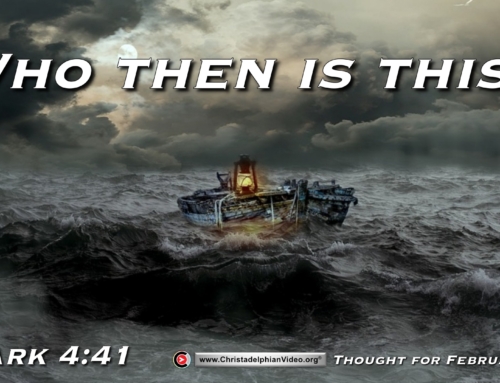Today’s readings..(Genesis 48, 49, 50), (Psalm 51,52), (Romans 5,6)
There are some days when all the readings provoke thoughts that are very meaningful and personal. In Genesis we have the words of Joseph to his brothers after their father died. The brothers are fearful that Joseph, in his position of great power in the land, will now take vengeance on them for the time they threw him into a pit, ignoring his pleas and sold him to be a slave. But Joseph now fully sees the events from God’s perspective.
“Joseph said to them, ‘Do not fear, for am I in the place of God? …you meant evil against me, but God meant it for good, to bring about …” [Gen.50 v.19,20] The lesson for us! – to look ‘into’ all strange and unexpected events to see whether the hand of God is there in – allowing or causing – the setting in motion of a chain of events for some divine purpose. But we usually perceive this only later as the events unfold. Also, we can say this is the case with our endeavours to understand much of apparently fulfilling prophecy in these days.
In the Psalms we have that most meaningful Psalm (51) which reveals David’s total remorse and repentance after his sin with Bathsheba – a powerful example for all who become belatedly awake to what a mess they have made in some part of their lives – but the awakening must be from the heart and create a prayerful seeking of God’s guidance.
Then in Paul’s letter to the Romans we have his most powerful portrayal of the impact that the sacrifice of Christ must have on us, as it obviously had on him. This impact may not come to begin with, but it must surely come if we are to be people whom our Lord can really use in his service. Paul writes of how “the free gift of grace of that one man (in contrast to Adam) Jesus Christ abounded for many.”[5 v.15] Yet, because it is “free” – do we really appreciate it in the right way? There seems to be a lot of glib talk around (spoken and written) in some religious circles about ‘grace’ – that it is always abounding – regardless of what we might ever do.
In ch. 6 Paul makes a really special point, or so it seems to us, “We know that Christ being raised from the dead will never die again; death no longer has dominion over him. For the death he died he died to sin, once for all, but the life he lives, he lives to God. So you also must consider yourselves dead to sin and alive to God in Christ Jesus.”
Then he makes this powerful point to his readers, those in Rome and of all ages. After saying, “you also must consider yourselves dead to sin” he pleads, “ Let not sin therefore reign in your mortal bodies, to make you obey their passions.” [v.11,12] Let us all see ourselves to be “dead” to sin. And if we cannot see that – then draw closer to Christ, our mediator. in earnest prayer. Also making sure we constantly meditatively read God’s word – to inspire us in seeing.







Leave a Reply